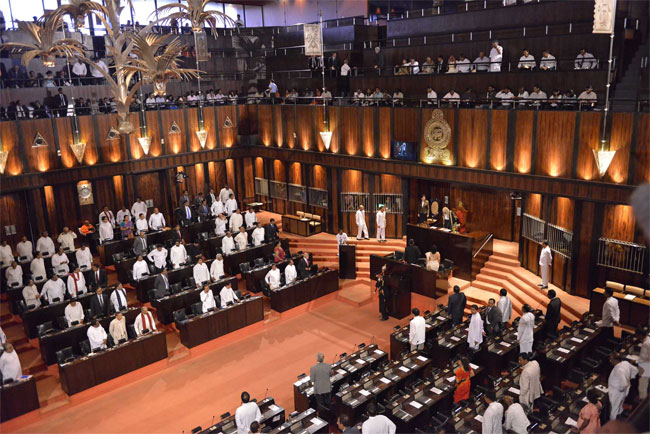Sri Lanka’s main opposition party, the Samagi Jana Balawegaya (SJB), has conditionally expressed support for the Public Finance Management Bill but opposes the Economic Transformation Bill, according to SJB MP Harsha de Silva.
MP de Silva, who also chairs the parliamentary Committee on Public Finance (COPF), tweeted on Thursday, July 25, that the SJB supports the Public Finance Management Bill but has proposed an amendment to what he termed the bill’s “unrealistic” primary expenditure limit.
The SJB’s opposition to the Economic Transformation Bill, de Silva said, is “not because of ideology but because the forced International Monetary Fund (IMF) targets” embedded in the bill, which comes just weeks before Sri Lanka’s presidential election.
The COPF, chaired by de Silva, passed the Public Finance Management Bill on July 11. Once enacted, this bill will replace the Fiscal Management (Responsibility) Act. De Silva stated that the new bill clarifies fiscal rules, strengthens budgeting, and enhances scrutiny.
“However, I oppose the arbitrary primary expenditure cap as it will restrict needed public investment to achieve 10 percent growth required to be a high-income country by 2040. We will amend soon!” de Silva stated.
The bill had set a 13 percent primary spending limit (expenses before interest) as part of efforts to improve fiscal discipline in the future.
In May, Treasury Secretary Mahinda Siriwardana described the Public Finance Management Bill as a landmark piece of legislation that would provide guidance and a framework for the future. The new law will make it harder for future administrations to overspend.
The law, which sets a 13 percent of GDP spending limit (before interest costs), includes a 2 percent ‘budget reserve,’ according to the draft bill. The spending limit can be exceeded in cases of “unanticipated events or natural disasters posing significant threats to national security, national economic security, or public health and safety, which necessitate additional, temporary, and targeted public expenditure beyond any contingencies included in the annual budget.”
In 2023, Sri Lanka had a primary spending volume of only 10.5 percent of GDP, with 8.9 percent allocated to interest.
Transparency International Sri Lanka (TISL), a non-governmental organization, filed legal action in the Supreme Court against the bill in June, raising concerns over public procurement. TISL stated that the bill “seriously weakens the controls on public procurement, thereby enhancing the corruption risk and weakening the level playing field.”
The bill grants the Finance Minister the discretion to exempt State-Owned Enterprises (SOEs) from compliance with the National Procurement Guidelines and permits Provincial Councils to adopt their own procurement guidelines, TISL stated.
“The National Procurement Guidelines are issued with the approval of the Cabinet of Ministers to enhance the transparency of the Government procurement process, minimize delays, and obtain the most financially advantageous and qualitatively best services and supplies for the nation,” TISL said in its petition.
“The level of corruption and bribery in Sri Lanka does not justify a relaxation or loosening of the oversight and protection against such risks.”


